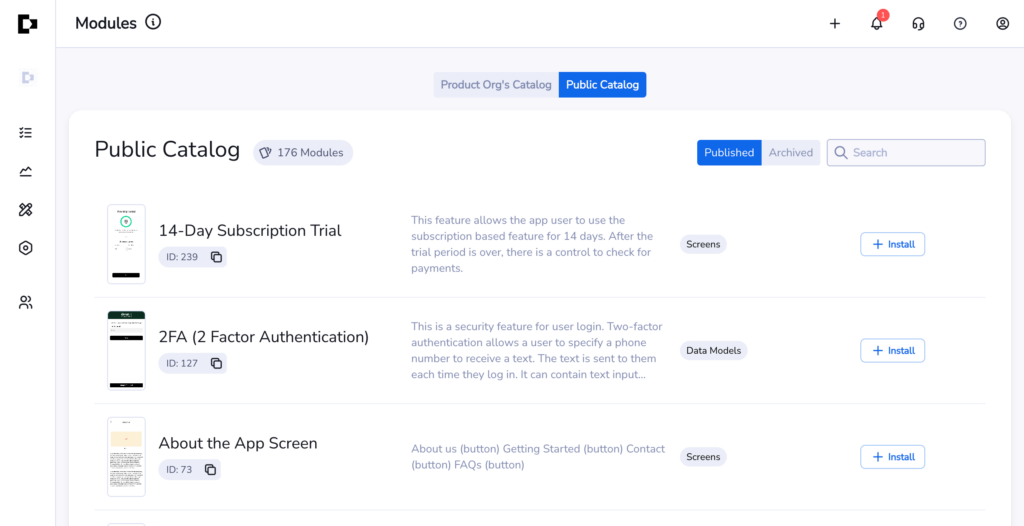A module is simply a self-contained piece code designed to be reused. In its simplest form, modules are structured as a set of files and folders, written in a specific programming language (e.g. JavaScript) and dependent on specific frameworks (e.g. React Native).
Modules can contain code implementing any part of an application. For example, libraries will likely have modules for the following:
User Interface — modules can implement complete screens (e.g. login screen, order form) as well as UI elements (e.g. page header, map).
Connectors — modules can implement code that connects an app to back-end services (e.g. tax calculation service) or to systems of record (e.g. SAP, Salesforce).
Policies & Config — modules can implement code that sets policy and configuration options for other installed modules (e.g. setting an API key for a service implemented in a different module).
Workflow/Logic — modules can implement code that defines simple or complex workflows (e.g. vacation authorization process, loan approval process), as well as defining reusable business rules (e.g. pricing calculator).
Data Model — modules can implement code that defines the data architecture for the application.
APIs — modules can implement APIs for exposing services to other applications or can consume APIs for accessing external services or for accessing data models.
Scaffolding – modules can implement application scaffolding that is standardized for your organization
At this stage, modules are mostly written in JavaScript and Python. However, soon, the platform will support modules written in many programming languages and using a wide variety of frameworks, architectures and underlying runtime infrastructures.
By taking this holistic, modular approach to reusable code, we provide the flexibility to implement a CodeOps practice that best suits your organization. You can invest in modularizing the code that has the highest impact across your portfolio of apps. The Crowbotics platform enables a broad spectrum of scenarios from minimal disruption to maximal digital transformation.


